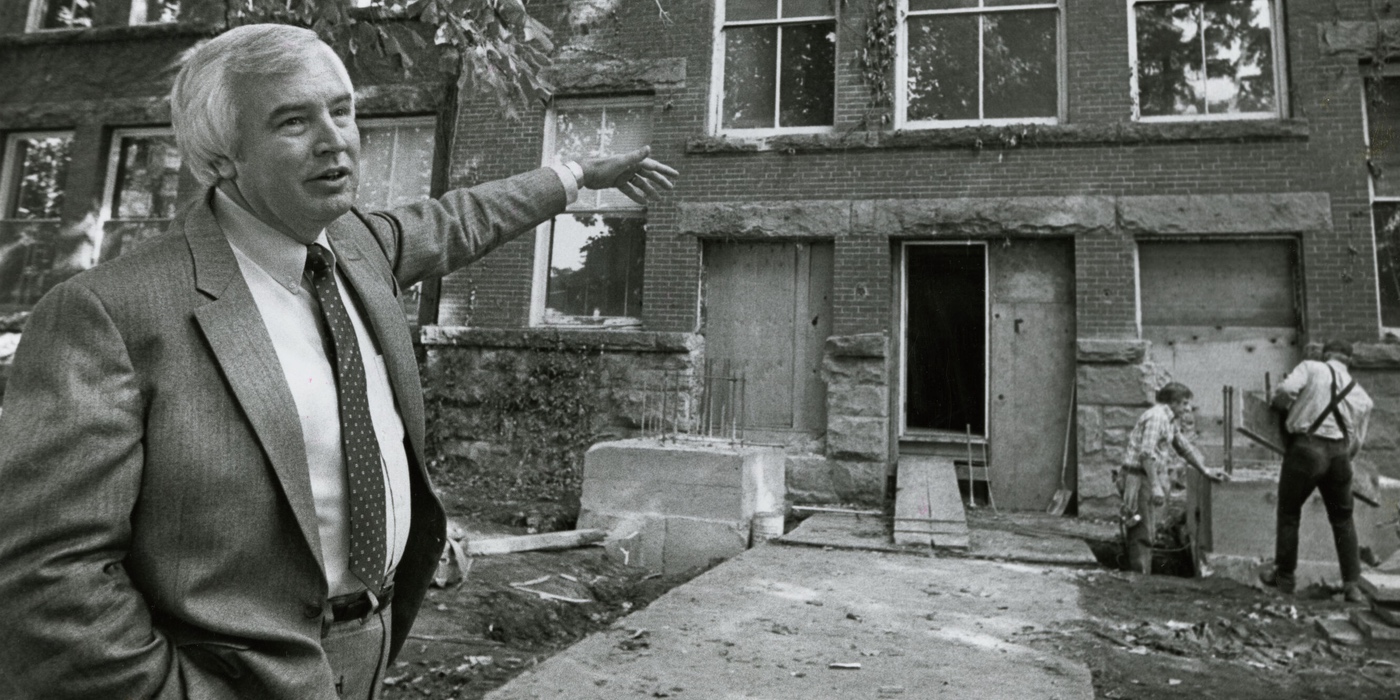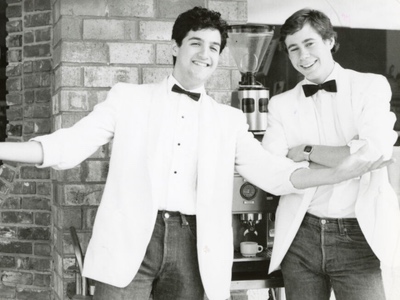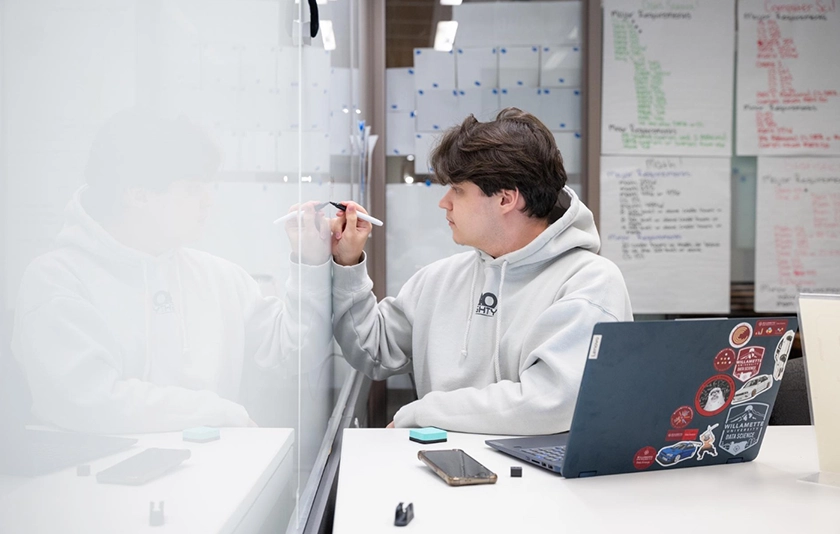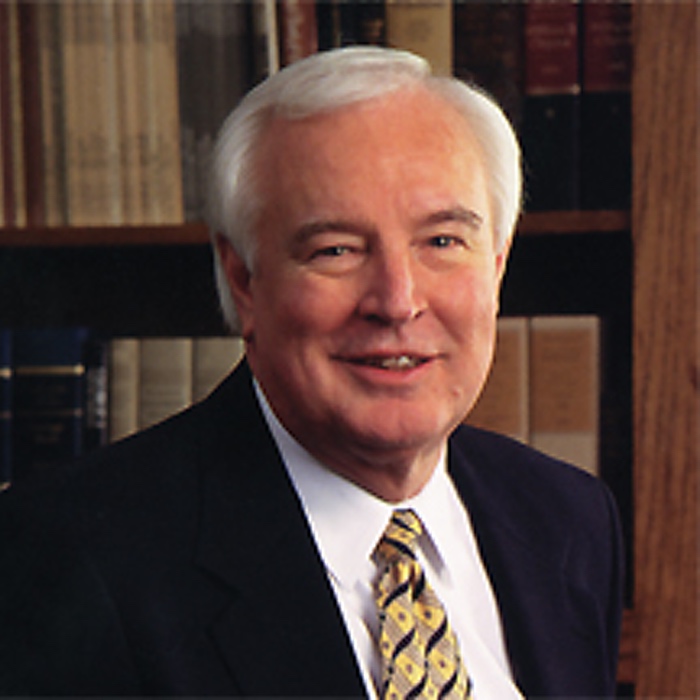
Willamette University mourns the passing of Jerry E. Hudson, who led Willamette from 1980–97 as its 18th President. Hudson died in Tennessee at the age of 86.
Hudson led a transformative period in Willamette’s history, establishing several signature landmarks that grace the Salem campus today. He strengthened academic programs, grew the university endowment, and solidified Willamette’s position as a leading national institution.
“Arriving at a time of significant financial challenges, Jerry shepherded the development of Willamette from regional to national prominence,” said Willamette President Stephen E. Thorsett. “Even a quarter century later, Jerry’s leadership echoes in many ways at Willamette, not least in the standard of excellence he sought to uphold, and in the culture of service that was exemplified in his own life.”
Visitors to Willamette today will immediately notice Hudson's impact on the Salem campus. Among the notable milestones under his leadership are the dedication of the Mark O. Hatfield Library, establishment of the Martha Springer Garden, creation of the F.W. Olin Science Center, and construction of Goudy Commons. He also played a strong role in completing Tokyo International University of America. Additionally, Hudson's vision laid the foundation for the Hallie Ford Museum of Art and the Mary Stuart Rogers Music Center, which is now home to his namesake Hudson Hall.
Another significant project during Hudson’s presidency was the rerouting of the Mill Stream in the summer of 1983. Now called “Hudson’s Bay” in his honor, the stream has become a centerpiece of the Salem campus — a space for students to gather, study, and relax.
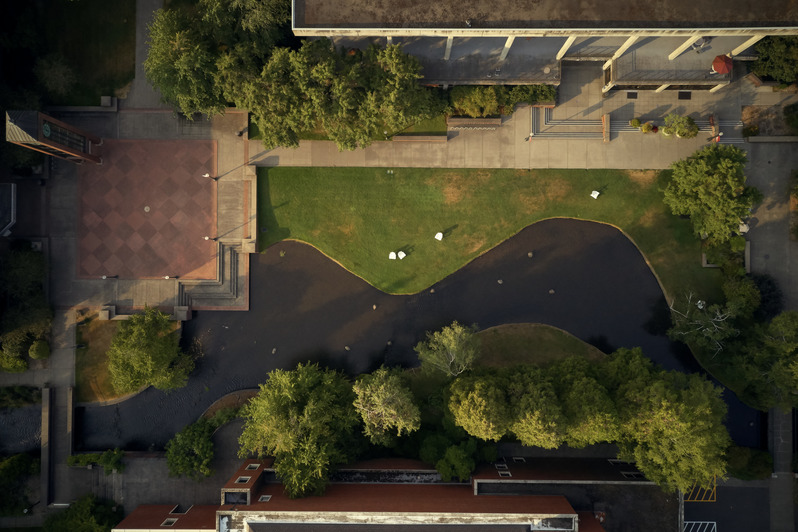
While Hudson’s presidency brought many changes to the campus, he also had a strong appreciation for the institution’s history. He rejected a proposal to demolish the historic Waller Hall, and instead re-dedicated the building and restored the second floor as Cone Chapel. Years later, he presided over the wedding of his daughter Angela in that historic space.
A Lifelong Passion for Leadership
Hudson was born in Tennessee in 1938 and graduated from David Lipscomb College (now University) before earning an MA and PhD in American history from Tulane University. In 1962, he began a higher education career that lasted over 60 years when he was appointed assistant professor of history at Pepperdine University. In his early years at Pepperdine, Hudson discovered a passion for university administration and leadership. He served as provost at Pepperdine and then president at Hamline before coming to Willamette.
During his tenure at Willamette, Hudson built strong relationships with the student body and worked closely with student leaders. Dawna Davies BS’91, who served as ASWU president, credited Hudson’s mentorship in a 1997 retrospective on the Hudson presidency.
“I saw President Hudson first as a mentor. He always shared information with me, almost as if I were a peer, and I appreciated the respect he gave me,” Davies said in 1997. “From my position as a student, that respect was a profound gift. I felt he heard me and took me seriously.”
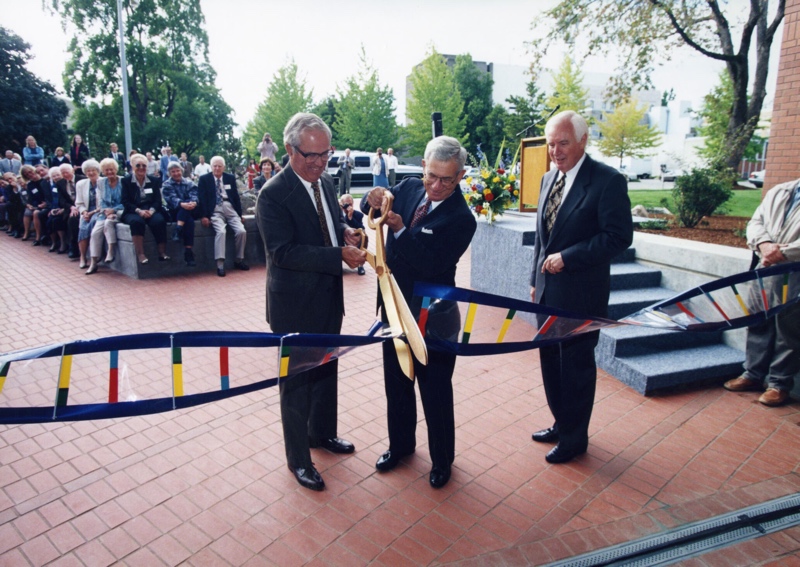
“Jerry Hudson was a calm and optimistic president and set a strong, positive direction for the university,” remembers Provost and Senior Vice President Carol Long. “I always appreciated his smile and the easy laugh with which he frequently met the world. He had a great way of listening and of setting priorities with ease and grace. I feel fortunate to have learned from him throughout his tenure as president.”
In 1997, Hudson retired from Willamette, leaving behind a legacy of institutional growth and transformation. In one of his last messages to the Willamette community before he retired, Hudson wrote: “It has been said that the difference between progress and growth can be likened to the difference between ‘leaving things behind us ... and leaving things inside us.’ I enjoy this metaphor because growth is essential to the life of an institution. Institutions are not static; they grow, change and evolve much like the people who shape and define them. Like people, their evolution is continuous. As I consider the changes we have made at Willamette over the past 16 years I recognize and applaud their continuity. We have not merely progressed, nor changed, we have grown."
"Growth is essential to the life of an institution. Institutions are not static; they grow, change and evolve much like the people who shape and define them. Like people, their evolution is continuous. As I consider the changes we have made at Willamette over the past 16 years I recognize and applaud their continuity. We have not merely progressed, nor changed, we have grown."
– Jerry Hudson upon his retirement from Willamette in 1997.
After retiring from Willamette's presidency, Jerry joined The Collins Foundation as Executive Vice President in 1997. After retiring from that role in 2007, he continued as a trustee at the foundation until 2018. “Jerry led The Collins Foundation through a period of growth and transition, both internally and in Oregon's non-profit landscape, working to improve internal processes, investment diversity, and grant decision-making. He was a very caring person who brought his whole self to our deliberations about where grant funding could be most effective," said Truman Collins, Jr. BA’86, President of The Collins Foundation and Willamette University Life Trustee.
“Jerry had a gentle, thoughtful, and collaborative leadership style, enhanced with a sense of humor, which was effective in both his role with Willamette and our foundation," said Collins. Collins notes that Collins Foundation trustee meetings began with a reflection presented by someone in the meeting. Jerry often read a meaningful passage from one of the many Methodist ministers he knew that centered compassion for others as of primary importance. “Throughout his time at Willamette and The Collins Foundation, Jerry's ability to gain the trust of, and bring together different stakeholders to work for solutions to common problems was critical,” Collins said.
“Believe In What the University Could Be”
Hudson’s impact on Willamette extended far beyond the physical campus, as he broadened the institution’s vision and expanded its aspirations.
Former Chairman of the Board of Trustees Henry Hewitt wrote in 1997 that under Hudson’s leadership, “The university has improved by every measure. The quality of the campus is visible, but perhaps less apparent is the improved quality of students and faculty, or the enriched and total student experience.”
As Hewitt further wrote, “Under Hudson’s direction, Willamette has made a quantum leap, with tremendous improvement in the academic program, in the size and caliber of the faculty, and in the credentials and experience of the students. The university's quality has been recognized regionally and nationally.” Hewitt cautioned the search committee tasked with finding Willamette’s next president: “We will find a successor to President Hudson, but we won't find anyone to replace him.”
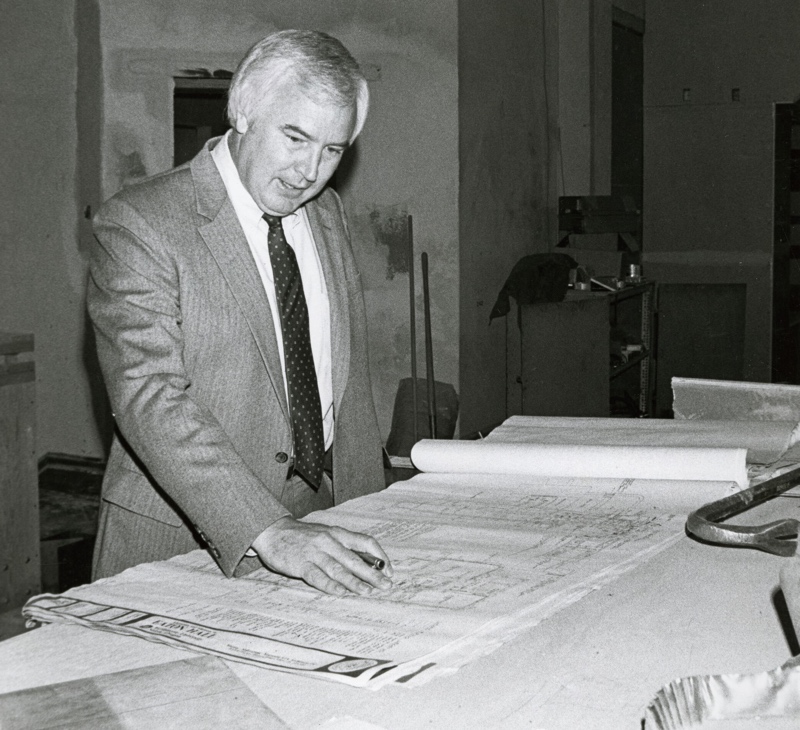
Those who knew Hudson best point to his collaborative leadership style, his incisive wit, and his commitment to service wherever he led.
“Seeing how Jerry led with curiosity and coached students to be visionary while being practical was a demonstration of his gift,” said Eric Friedwald-Fishman BA’88, Life Trustee Emeritus and co-founder of the Bistro. “Across his presidency at Willamette, his leadership did both — being a visionary to transform the campus and to move WU from a regional to a national college and the practicality to build a solid financial base for the institution.”
With a record of strong and effective leadership, and a series of successful campus initiatives that touched nearly every building on Willamette’s Salem campus, Hudson will likely be looked back upon as one of the most consequential presidents in Willamette’s 182-year history.
“I would like to be remembered as somebody on whose watch the institution became better,” Hudson said upon his retirement from Willamette. “I hope to be remembered as one who was able to get all of Willamette’s constituencies to believe in themselves and to believe in what the university could be.”
The thoughts of the Willamette community are with his wife Ann, his family including his daughter Judith Matarazzo JD’84 and grandson Harrison Matarazzo BA’15, and his many friends, former students, and colleagues.
Note: Archival photographs courtesy of the Willamette University Campus Photo Collection. Special thanks to University Archivist Susan Irwin and Processing Archivist Abigail Chavez for their help in researching this piece.
